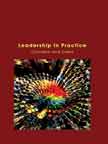The Ramoji Group
|
|
ICMR HOME | Case Studies Collection
Case Details:
Case Code : LDEN001
Case Length : 8 Pages
Period : 1992-2002
Pub Date : 2002
Teaching Note : Available
Organization : Varied
Industry : Media and Entertainment Countries : India
To download The Ramoji Group case study (Case Code: LDEN001) click
on the button below, and select the case from the list of available cases:

Price:
For delivery in electronic format: Rs. 300;
For delivery through courier (within India): Rs. 300 + Shipping & Handling Charges extra
»
Leadership and Entrepreneurship Case Studies
» Case Studies Collection
» ICMR HOME
» Short Case Studies
» View Detailed Pricing Info
» How To Order This Case
» Business Case Studies
» Area Specific Case Studies
» Industry Wise Case Studies
» Company Wise Case Studies

Please note:
This case study was compiled from published sources, and is intended to be used as a basis for class discussion. It is not intended to illustrate either effective or ineffective handling of a management situation. Nor is it a primary information source.
Chat with us

Please leave your feedback

|
|




<< Previous
Background Note Contd...
|
In the late 1960s, Ramoji Rao also started a magazine for the farmers called 'Annadata'
in Telugu.3
Commented Ramoji Rao, "My
heritage lies in the soil and my forefathers were all farmers.
But I sold off all my property and to atone for this and to do something special
for the farmer community I started a magazine in their language"
In 1974, Ramoji Rao entered the print media by launching Eenadu, a Telugu
newspaper in Visakhapatnam. Ramoji Rao explained, "I focussed on the region
which I thought was most relevant to the people."
|

|
The Hyderabad edition was launched in 1975, followed by the Vijayawada (Andhra
Pradesh) edition in 1976. In the early 1980s, Ramoji Group entered the foods
business with Priya Pickles.
|
|
The Priya brand was later extended to culinary pastes and powders. The Group
then made a foray into films with Ushakiron Movies.
The Group established Mayuri Film Distributors to distribute its films and
Mayuri Audio to market the audio cassettes of the films. In the early 1990s,
Ushakiron Movies diversified into satellite television with ETV – the Telugu
channel.
In 1992, the Ramoji Group started a handicrafts division under the name 'Kalanjali'.
The division was set up with a view to promote the sale and export of
handicrafts, cottons and textiles of Indian craftsmen. |
On September 9, 1997, The Ramoji Group inaugurated its most innovative creation
- The Ramoji Film City based on the maxion - "Walk in with your script and walk
out with your print". Spread over 1000 acres, the Film City had gardens,
temples, a sprawling countryside, a fort, hotels, city streets, railway
stations, a palace, an airport, a mobile kitchen etc. It had all the technical
support to make a film - 40 studio floors, a fully-equipped prop shop, a set
design and construction division, state-of-the-art equipment, experienced
production staff, and hi-tech digital editing, dubbing and sound-recording
facility. Said Ramoji Rao, "The idea is to save time, energy and resources and
focus on creative excellence, executional quality, economical schedules and
meticulous planning"...
Excerpts >>
|
|










